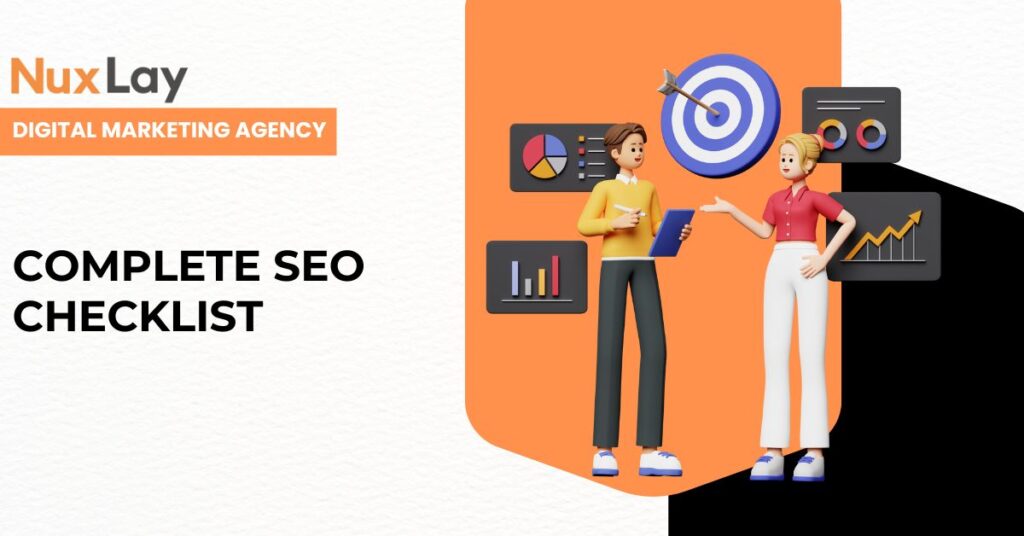In the ever-evolving landscape of digital marketing, staying abreast of the latest SEO trends and algorithm updates is paramount for maintaining a competitive edge. As we approach 2025, search engine optimisation continues to be shaped by technological advancements and changing user behaviours. One of the most significant trends is the increasing emphasis SEO Checklist on artificial intelligence and machine learning in search algorithms. These technologies enable search engines to understand user intent more accurately, delivering more personalised and relevant results.
Table of Contents
Moreover, the importance of voice search is expected to grow exponentially. With the proliferation of smart speakers and voice-activated devices, optimising for voice queries will be crucial. This involves focusing on natural language processing and long-tail keywords that mimic conversational speech. Additionally, mobile-first indexing remains a priority, as mobile searches continue to surpass desktop searches. Ensuring that websites are mobile-friendly and load quickly on all devices is essential for maintaining visibility in search results.
Furthermore, the significance of high-quality, authoritative content cannot be overstated. Google’s E-A-T (Expertise, Authoritativeness, Trustworthiness) principle underscores the need for content that not only informs but also builds trust with users. As SEO trends evolve, businesses must adapt their strategies to align with these changes, ensuring they remain visible and relevant in a dynamic digital world.
Conduct Thorough Keyword Research using Advanced Tools and AI Technologies on SEO Checklist
In the competitive realm of digital marketing, conducting thorough keyword research is a foundational step towards achieving online success. As technology advances, the methods and tools for keyword research have evolved significantly. Utilising advanced tools and AI technologies can provide deeper insights and a more strategic approach to identifying the most effective keywords for your content.
AI technologies have revolutionised the way marketers approach keyword research by analysing vast amounts of data to predict trends and user behaviour. These technologies can process complex algorithms to identify patterns and suggest keywords that might not be immediately obvious. This ensures that your content remains relevant and aligned with current search trends, ultimately enhancing your visibility and reach.
Advanced tools offer features such as competitor analysis, search volume metrics, and keyword difficulty scores, enabling marketers to make informed decisions. By leveraging these tools, businesses can identify niche keywords with high potential, thus optimising their content for both short-term gains and long-term growth. The integration of AI and advanced tools in keyword research not only saves time but also enhances the precision and effectiveness of your SEO strategy, ensuring you stay ahead in the ever-evolving digital landscape.
Optimise Website Structure for Enhanced User Experience and Mobile-First Indexing
Optimising website structure is crucial for delivering an enhanced user experience and aligning with mobile-first indexing, a priority for search engines in today’s digital environment. A well-structured website not only facilitates easy navigation but also ensures that users can access information quickly and efficiently, leading to increased engagement and lower bounce rates.
With the shift towards mobile-first indexing, it is imperative that websites are designed with mobile users in mind. This involves creating responsive designs that adapt seamlessly to various screen sizes, ensuring that content is accessible and visually appealing on smartphones and tablets. Key elements such as intuitive navigation menus, fast loading times, and clear calls-to-action are vital for retaining mobile users’ attention and encouraging interaction.
Moreover, a logical and organised website structure aids search engines in crawling and indexing content more effectively. Implementing a clear hierarchy with well-defined categories and subcategories allows search engines to understand the relationship between different pages, enhancing the site’s overall SEO performance. By prioritising both user experience and mobile-first indexing in website design, businesses can improve their search rankings and provide a seamless browsing experience, ultimately driving more traffic and conversions.
Implement high-quality, relevant content with semantic SEO strategies
In the dynamic world of digital marketing, implementing high-quality, relevant content is fundamental to engaging audiences and achieving SEO success. Semantic SEO strategies have emerged as a powerful approach to enhance content visibility by focusing on the contextual meaning behind search queries. This approach involves understanding the intent and nuances of user searches, allowing businesses to create content that meets specific needs and interests.
High-quality content goes beyond mere keyword stuffing; it requires a comprehensive understanding of the topic and the ability to deliver valuable insights. By integrating semantic SEO strategies, content creators can ensure their material is not only informative but also contextually relevant. This involves using related terms and phrases, answering common questions, and providing comprehensive coverage of the subject matter, thereby improving the likelihood of appearing in featured snippets and voice search results.
Furthermore, semantic SEO encourages the use of structured data and schema markup to help search engines interpret the content more effectively. This results in better indexing and potentially higher rankings. By prioritising high-quality, relevant content and employing semantic SEO strategies, businesses can enhance their online presence, foster trust with their audience, and drive sustained growth in an increasingly competitive digital landscape.
Enhance on-page SEO with optimised meta tags and header structures
Enhancing on-page SEO is a pivotal aspect of improving a website’s visibility and ranking in search engine results. One of the fundamental components of on-page SEO is the optimisation of meta tags and header structures, which serve as critical signals to search engines about the content and relevance of a webpage.
Meta tags, including the title tag and meta description, play a significant role in influencing click-through rates. A well-crafted title tag should be concise, accurately reflecting the content of the page while incorporating relevant keywords. Similarly, the meta description should provide a compelling summary that encourages users to click through to the site. Both elements should be unique to each page to maximise their effectiveness.
Header structures, using H1, H2, and subsequent tags, are equally important as they help organise content hierarchically, making it easier for both users and search engines to understand the main topics and subtopics of a page. Properly optimised headers not only improve readability but also enhance keyword relevance, aiding search engines in indexing the content accurately. By focusing on optimising meta tags and header structures, businesses can significantly boost their on-page SEO efforts, leading to improved search rankings and greater user engagement.
Utilise advanced link-building techniques for authoritative backlinks
In the competitive landscape of digital marketing, acquiring authoritative backlinks through advanced link-building techniques is essential for enhancing a website’s credibility and search engine rankings. High-quality backlinks serve as endorsements from reputable sites, signalling to search engines that your content is trustworthy and relevant.
One effective technique is to create compelling, shareable content that naturally attracts links. This includes in-depth articles, infographics, and original research that provide value to readers. By promoting this content through social media and industry forums, you can increase its visibility and potential for being linked by other sites.
Guest blogging on authoritative websites is another strategic approach. By contributing high-quality articles to well-regarded platforms, you not only gain exposure to a wider audience but also secure valuable backlinks. It’s crucial to target sites that are relevant to your industry to ensure the backlinks are contextually appropriate.
Additionally, building relationships with influencers and industry leaders can lead to collaboration opportunities and backlink acquisition. Engaging in online communities and participating in discussions can also help establish your authority and encourage organic link-building. By leveraging these advanced techniques, businesses can cultivate a robust backlink profile, enhancing their online presence and boosting their search engine performance.
Leverage voice search optimisation and AI-driven personalisation
As technology continues to evolve, leveraging voice search optimisation and AI-driven personalisation has become crucial for businesses aiming to stay ahead in the digital landscape. Voice search, driven by the proliferation of smart speakers and virtual assistants, demands a shift in SEO strategies. Unlike traditional text searches, voice queries tend to be more conversational and longer. Therefore, optimising content to include natural language and long-tail keywords is essential for capturing this growing segment of search traffic.
AI-driven personalisation, on the other hand, offers the opportunity to tailor user experiences based on individual preferences and behaviours. By analysing data patterns, AI can deliver personalised content recommendations, enhancing user engagement and satisfaction. This level of personalisation not only improves the user experience but also increases the likelihood of conversions and customer retention.
Integrating these two elements—voice search optimisation and AI-driven personalisation—can significantly enhance a business’s digital strategy. By ensuring that content is easily accessible through voice search and tailored to meet the unique needs of each user, businesses can improve their visibility and relevance in a competitive market. Embracing these technologies will be key to maintaining a competitive edge and driving growth in the ever-evolving digital ecosystem.
Monitor and analyse SEO performance using cutting-edge analytics tools
In the fast-paced world of digital marketing, monitoring and analysing SEO performance is vital for maintaining and improving a website’s search engine rankings. Utilising cutting-edge analytics tools provides businesses with the insights needed to refine their SEO strategies and achieve optimal results. These tools offer a wealth of data, from keyword rankings and traffic sources to user behaviour and conversion rates, enabling marketers to make informed decisions.
Advanced analytics tools allow for real-time tracking of SEO performance, highlighting areas of success and identifying opportunities for improvement. By analysing this data, businesses can understand which keywords are driving traffic, how users are interacting with their site, and where they may be losing potential customers. This information is crucial for adapting strategies to better meet user needs and search engine algorithms.
Furthermore, these tools often include features such as competitor analysis, helping businesses understand their position in the market and identify strategies that can give them an edge. By leveraging cutting-edge analytics tools, businesses can ensure their SEO efforts are data-driven and results-oriented, leading to improved visibility, increased traffic, and higher conversion rates in the competitive digital landscape.






